Memorial Medical Center
Drug Rehab Center in Ashland, Wisconsin
Memorial Medical Center in Ashland, Wisconsin offers a comprehensive range of treatment services for individuals seeking recovery from addiction and substance abuse, including detox, inpatient, outpatient, and dual-diagnosis treatment options.
About Memorial Medical Center in Wisconsin
Memorial Medical Center in Ashland, Wisconsin is a treatment facility that specializes in supporting individuals seeking recovery from alcoholism, opioid addiction, and dual diagnosis. Their comprehensive approach to helping patients address these issues is evident in the variety of services they offer. Memorial Medical Center provides detox, inpatient, outpatient, dual-diagnosis, and intensive outpatient levels of care. They also accept private health insurance, making their services accessible to individuals seeking treatment.
At Memorial Medical Center, patients can benefit from a range of services and treatment methods designed to address addiction and substance abuse. Their detox program offers a safe and supportive environment for individuals to go through the withdrawal process under medical supervision. Inpatient treatment provides around-the-clock care and support, allowing patients to fully focus on their recovery. Outpatient services offer flexibility for those who prefer to maintain their daily responsibilities while receiving treatment. Additionally, Memorial Medical Center recognizes the importance of addressing co-occurring mental health conditions and provides dual-diagnosis treatment. Their dedication to personalized care and the integration of evidence-based practices ensure that individuals receive comprehensive support on their journey to sobriety.
Genders
Ages
Modality
Additional
Conditions and Issues Treated
Opioid addiction treatment should be done in a medically supervised drug rehab. While taking opioids, users will typically use other substances to enhance the effects of opioids or to reduce the adverse effects of opioid use. Opioid addiction treatment will include detoxification and drug rehab counseling to help both the user and their loved ones learn how to live a successful sober lifestyle.
Treatments such as methadone, buprenorphine, and naltrexone are three medications that can help treat opioid addiction. These drugs work on the brain’s pleasure center and reduce cravings and the effects of illicit opioids such as heroin. These drugs can be either given orally or by injection. Individual drug rehab counseling sessions can be helpful to discuss any questions or concerns with the drug treatment program. This counseling will also help the user set goals for when they finish drug rehab.
Opioid addiction recovery is a long process. Many of the changes to the brain caused by opioid use cannot be undone, but with time and the proper treatment, a person can return to normal function. After detox, treatment will include drug rehab counseling and entering a halfway house or sober living community. Aftercare is critical to long-term recovery, as it helps the user avoid relapsing and entering back into drug rehab.
Levels of Care Offered
This center offers a variety of custom treatment tailored to individual recovery. Currently available are Detox, Dual-Diagnosis, Inpatient, Intensive Outpatient, Outpatient, with additional therapies available as listed below.
An addict may have to go through alcohol or drug withdrawal. While detox may be uncomfortable, it is not life-threatening. Detoxification allows the addict to rid the body of all traces of drugs or alcohol and gives the addict a clean slate for their recovery. In an inpatient or outpatient setting, detox can be managed medically.
Inpatient treatment for alcoholism or drug addiction is an option that provides the addict with a supportive environment in which they can stop using. This type of treatment is appropriate for addicts that are most in need of intensive care and supervision. This includes those who were unable to quit on their own, those who need more structure than they can get in outpatient treatment.
Intensive outpatient treatment is a type of comprehensive addiction care. Unlike conventional residential treatment programs, the patients live at home during the recovery process. This means that one can continue working and caring for their families. These also allow people to keep pursuing their studies while also working on their sobriety.
Outpatient treatment can help one transition to normal life from the round-the-clock supervision and treatment available during inpatient treatment. It is an excellent tool to ensure long-term recovery. However, it is essential to note that intensive outpatient treatment in itself does not remove patients from the real-world setting. This means there’s always a higher risk of coming across environmental triggers. To further prevent relapse, an outpatient treatment center should be able to provide ongoing support services.
Once the patient is enrolled in an intensive outpatient treatment program, they will be expected to attend therapy and group meetings daily for a stipulated period. The frequency and duration of each session will depend on the patient’s needs and level of addiction. This can help curb the habit and deal with underlying issues that led to it. Most of these professional treatments are designed to allow patients to structure their daily schedules in a way that is conducive to recovery.
“Outpatient treatment is ideal for those who have a lower intensity addiction. It’s also suitable for those with a supportive environment and those on a tight budget.
Outpatient treatment can be considered the lowest intensity level of addiction treatment. It is ideal for early phase addiction or lower intensity addictions. It may involve weekly sessions instead of daily. Peer group support, 12-step programs, and individual counseling may still be used and anti-addiction medication.
Therapies & Programs
Group therapy is held in a safe, controlled setting where patients can feel comfortable sharing their struggles and gaining perspective through shared conversations. It takes place in a group rather than one on one to prevent feelings of isolation or being unique in their situation while creating an environment for addicts at Memorial Medical Center to develop fellowship, accountability, and support. Group therapy is an important tool in recovery that prevents cravings that prompt a return to active addiction.
This type of therapy involves the use of a variety of therapeutic techniques to help addicts recover from past traumas that might have triggered their substance abuse. During these sessions, therapists will work with the addict to address painful memories and learn how to cope effectively with stressors as they arise.
During these types of sessions, therapists will typically focus on three main goals:
- Identifying and expressing painful emotions associated with past traumas.
- Reducing the effects of stress on an addict’s life by developing more effective coping mechanisms.
- Developing healthy ways of thinking about stressful situations that can help addicts avoid substance abuse issues in the future.
This type of therapy is typically used in conjunction with other types of addiction treatment services. By identifying and dealing with the root cause of addiction, most addicts can overcome their cravings and prevent relapse once they leave rehab.
Many different types of addiction treatment services exist to help addicts safely get sober, but it’s important for recovering individuals to find a therapist or support group that will help them address the root cause of their addiction.
Payment Options Accepted
For specific insurance or payment methods please contact us.
Is your insurance accepted?
Ask an expert, call (888) 674-0062
Additional Details
Specifics, location, and helpful extra information.
Ashland, Wisconsin 54806 Phone Number(715) 685-5400 Meta DetailsUpdated November 25, 2023
Staff Verified
Memorial Medical Center Patient Reviews
There are no reviews yet. Be the first one to write one.
Ashland, Wisconsin Addiction Information
Wisconsin has some of the highest rates in the United States for both adolescent and adult substance abuse. Since 2009, the state has been experiencing the same escalating rates of drug abuse and addiction as the rest of the country. The major concerns are the misuse of prescription painkillers and the escalating number of deaths due to alcohol-related liver disease.
Drug abuse statistics in Ashland, Wisconsin show that the problem is getting worse. The number of people who had at least one drink of alcohol in the past grew from 58.3% to 61.1%. Marijuana use increased from 5.9% to 10.2% between 2013 and 2015. In Ashland, there were 95 drug-related deaths in 2016. It's important to do your research when looking for a treatment center, as not all facilities are created equal.
Treatment in Nearby Cities
- Monroe, WI (281.3 mi.)
- Shawano, WI (165.6 mi.)
- Slinger, WI (257.5 mi.)
- Kiel, WI (230.4 mi.)
- Mequon, WI (270.9 mi.)
Centers near Memorial Medical Center
The facility name, logo and brand are the property and registered trademarks of Memorial Medical Center, and are being used for identification and informational purposes only. Use of these names, logos and brands shall not imply endorsement. RehabNow.org is not affiliated with or sponsored by Memorial Medical Center.


